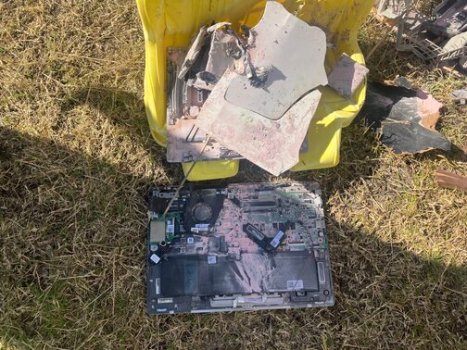A NSW council has been goaded into action after a series of fires in garbage trucks and waste management sites caused by batteries.
All household batteries are flammable and can ignite when exposed to heat or compression, which can occur when they are compacted during kerbside collection.
An average of three to four fires a week are being reported in NSW as a result of batteries in waste and trucks, recycling centres, transfer stations, landfills and scrap metal yards.
Fire and Rescue NSW recorded 180 lithium-ion battery fires in 2022, up from just 16 in 2021, with related injuries also on the increase.
Lake Macquarie City Council, in the NSW Hunter region, has launched an education and awareness campaign and opened up free drop-off centres following a series of local and regional incidents, including a recent garbage truck fire caused by a laptop concealed in a cardboard box.
Batteries that end up in landfill are also causing fires and contaminating soil and waterways, Council says.

Battery fires increasing
Waste Operations Coordinator Kieran Peter says garbage truck drivers are dealing with battery fires in their vehicles more frequently than ever.
“We’ve had instances where fires have broken out in the trucks and community members have helped our staff manage fires with garden hoses while waiting for emergency services,” he said.
“This is a very real threat to safety for our staff, vehicles, locals and their properties.”
Waste Services Manager Paul Collins says a rise in lithium-ion powered products, including ebikes and escooters is contributing to the increase in battery fires.
“Ten times as many ebikes and escooters are being sold now compared to six years ago, so there are far more rechargeable and lithium-ion batteries in circulation,” he said.
“When these batteries reach the end of their life or become damaged, people often mistakenly think it’s okay to throw them away in the garbage or recycling bin.”
Council is encouraging residents to leave their old batteries at appropriate recycling centres and has added free drop off points at a number of council facilities including libraries and its local recycling facility.





Here we all go again replacing one environmental threat with another to keep society supplied with energy to maintain the lifestyle that we have all become accustomed to. What is going to happen with all the millions of dead lithium batteries from the worlds motor vehicle fleet in years to come not to mention the dead batteries from residences world wide. Unless recycling programs are introduced at the same rate as batteries are produced on abroad scale matters are going to become more problematic as years go by. Factoring all this in nuclear is beginning to look good in conjunction with wind and solar
Please offer a reward to someone who can invent a incentive scheme to persuade people not to put hazardous material in the garbage.
In the Political Rush to Go Green, we forgot the the most important question!
How do dispose of the batteries.
A pretty basic question.
But we asked the consulting industry for there collective wisdom. But they are as unregulated as Politicians who are asking the question.
In the past CSIRO use to be the place to ask these pressing questions for a reasoned scientific answer!
If we have issues with laptops phones and other lithium ion battery powered devices . what about EV’s?
Today their are other battery chemistry that are more inherently safer.